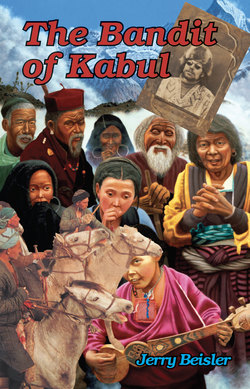Читать книгу The Bandit of Kabul - Jerry Beisler - Страница 14
На сайте Литреса книга снята с продажи.
ОглавлениеChapter Seven
“Hanoi Hannah – averaged about a man a day – when she wasn’t working – she kept the coffee perkin’ for a guy that didn’t have to pay.”
“HANOI HANNAH,” R. MCGUINN AND J. LEVY
Due to international airspace restrictions during the “ceasefire,” as it was called, between India and Pakistan, there were no flights out of Asia into Afghanistan from anywhere except Bangkok. So, from Kathmandu, Rebecca and I flew to Thailand.
Downtown Bangkok, in 1971, consisted of small, one-man noodle stands scattered at random and mixed among a dozen buildings that had full-on Western style boutiques, escalators and air conditioning. Gucci was the most popular boutique. The American Express office, where all nationalities received mail, was located high up in one of those skyscrapers. The panoramic view it presented revealed a modern, suburban, American-like development surrounding Bangok, that was being furiously constructed from money fueled by the Vietnam War. South Africans, Italians and the French were making nice profits off that war, as were Americans from every state. All were cashing checks, buying traveler’s checks or wiring funds back home. News and gossip flowed as fast as the indexing of international currencies.
Bangkok was mainly a pass-through plane hub on the way to somewhere else. There were two or three hotels that accommodated the pilots and airline personnel as well as most of the passengers who were just transiting through on their way to other destinations. One notorious hotel was The Malaysia. It was infamous for its junkie clientele and Thai hangers on. Another hotel featured great ganja connections.
We chose to stay for a couple of nights at the hotel known for its weed connection to get our hands on some herb. Once that was accomplished we moved to the classy Oriental Hotel, which was an inexpensive four-star wonder. The Oriental had four bungalows built as high-end suites in the early 1900s. Rattan ceiling fans, bamboo shutters, a king-sized bed, mosquito nets and night ginger wafting in on a Chao Phraya River breeze are undeniably aphrodisiacs.
The opposite of loving sex was a constant presence, however. Rebecca had her first encounter with the infamous Asian escort girls. Almost every male we met had on his arm a lovely bar girl. At this time, most of these girls were from the starving tribal highlands where their families were forced to sell their daughters to Cholon Chinese agents. The “agents” encouraged the girls into the local sex profession if they were pretty. The less fortunate were shuffled off to Arab seaport brothels. In Thailand, the girls were given a few days of training and then sent out to work under controlled circumstances in the bars. They could speak little, if any, English. Rebecca interacted with them politely. They were very well mannered.
One girl would generally stay with the man who paid her “bar fee” for as long as he was in the country. It wasn’t unusual to see two or three such escort girls at dinner or any social situation.
All of the nightlife took place in the infamous Patpong Road area. This two-block wide and six-block long strip had clubs with names such as “Mississippi Queen,” “Chicago Gangsters” and “Super Star.” The strip was an electronic-neon excess gone wild. Video screens and computer light shows were found here and recorded rock and roll blared out of the clubs. American soldiers on R&R mixed it up with Danish engineers, Middle Eastern merchants, Japanese electronic experts, and international travelers like us. The males sported sweet young things on their arms. Anyone could get a small bag of second-rate ganja from the circling cab drivers. Barkers hawked clubs with weird sex shows … “see a pussy smoke a cigarette” … or promising an up-close view of girls shooting ping pong balls out of their vaginas. “Hey Joe … inside you gonna see a pussy drink Coca-Cola and then you drink the Coca-Cola … !” A herd of staggering sailors eagerly paid money for the privilege.
The restaurants offered an astounding array of culinary delights derived from the European countries of their “war rich” clients. There was a German hofbrau, a French bistro, a Swedish smorgasbord and an American cheeseburger shack. Rebecca and I absorbed the scene but after an hour’s worth of loud Rolling Stones and Otis Redding, and a wonderful meal at one of the many ethnic restaurants strung around the area, we’d had enough.
The following morning we took an escorted tour through the museum, the King’s palace grounds and a major Buddhist temple that was home to a five-ton gold statue. It was a rich historical and cultural experience, the exact opposite of the previous evening. We barely had time to digest the magnificent artisanship of Thailand past or the exotic architecture of the royal enclave before we were notified that we had a four-hour window of opportunity to get on a plane to Kabul.
